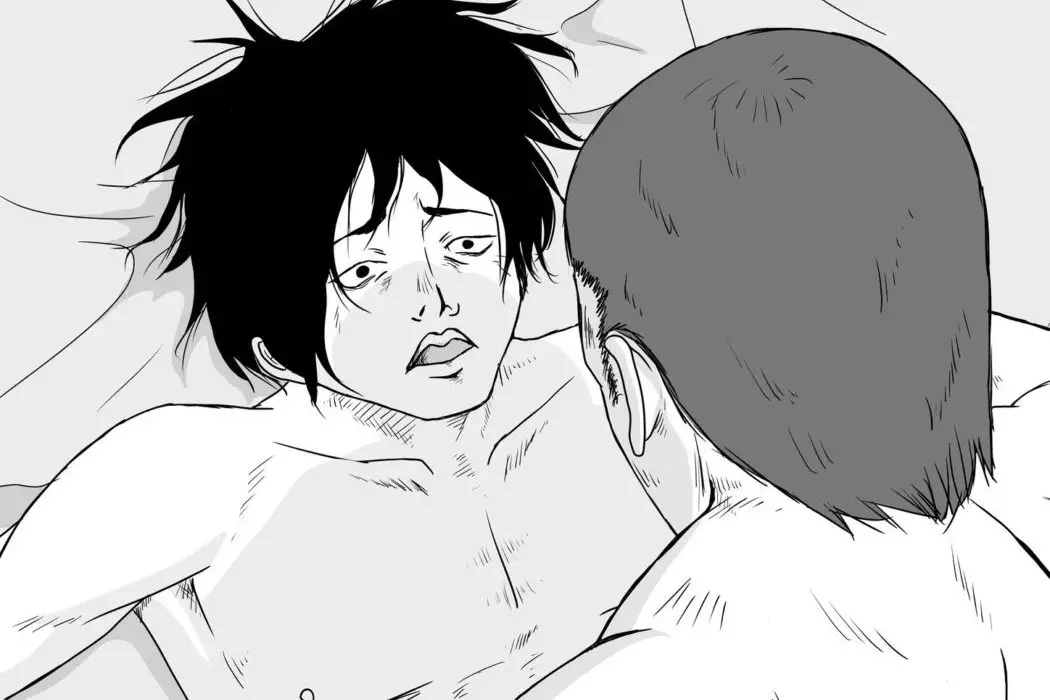BOYS FOR SALE: Tokyo’s Underworld

Akemi is a recent graduate of NYU's Tisch School of…
Since the 17th century, Shinjuku 2-Chome has earned the reputation as the sex district of Japan, located in the nation’s capital, Tokyo. Beginning in the 1960s, the area has grown into the “gay hub” of Asia, with over 800 LGBTQ businesses. Boys For Sale dives into the world of the urisen (also known as “boys”) that are paid to have sex with other men. Brought in by the allure of a high paying part-time job, urisens have to learn to navigate the industry as they go.
Urisen 101
The topic of sex in Japan is still difficult to talk about and discrimination is common for the culture. While Shinjuku’s reputation is well known, what happens in the city is taboo and relatively unknown to outsiders. Prior to filming, director Itako and his team met with the urisens that are interviewed, working to gain trust and assure the protection of the boys. Each of the urisens and bar managers interviewed revealed their identity to the extent that they were willing to share; most wore masks or had blurred faces.

An animated billboard for HIV testing dissolves into the real ad on the corner of the street in Shinjuku. While modesty and discretion are key in Japan, Shinjuku explicitly advertises what the quarter has to offer. Signs for “boy bars” and “delivery boys” are found on every street and scouting ads cover the city. As Shinjuku is open with itself, Boys For Sale leaves nothing to the imagination.
The essential steps to gain trust and help the boys feel comfortable on camera allowed the boys to speak candidly about their experiences, the highs and lows of their work and how they started. Everything they speak about is shown as it exists in Shinjuku, while the private moments are envisioned in animated sequences that help guide the documentary.

Most of the boys are between the ages of 19-24 and start working urisens because they’re in debt and, recently, many were driven to Shinjuku because of earthquakes and tsunamis. Scouting ads lure boys in and others are scouted on social media or in person, promising same-day pay and hiring of all ages with no experience required. A number of the urisens interviewed felt they were deceived into the job. A majority of the urisen are straight men that are told their clients would be women and, on occasion, men. Prospects are told they’re being hired as rental boyfriends, not urisens who must have sex with their clients.
The Risks
Japan is the only developed country where the number of those with HIV is increasing. Sex is not spoken about in Japan and so their sex education is insufficient. Many of the young urisens don’t know what STDs are or how they’re contracted. One admitted in an interview that he didn’t know that men could even get STDs. Shinjuku bar owners Hotta Kouji and Tendo Kouki sponsor events in tandem with non-profit organizations that promote safe sex campaigns.
Some organizations send out weekly deliveries to bars to fill condom dispensers and even deliver to hattenba, the cruising spot. Even still, the increasing awareness cannot combat clients. One urisen explains that Japanese function with indifference to problems that do not directly affect them. While clients understand hygienic protocols such as bathing, many clients don’t follow urisens’ requests to wear condoms, either bribing to pay more money or at times flat out refusing. Through blurred faces, many urisens became uneasy when discussing the dynamic between themselves and the clients. To urisens, the clients are powerful and strong-willed.

While the boy bars arrange meetings for the urisens and clients, they don’t oversee or involve themselves in reality of what happens in “love hotels.” Boy bars are paid an hourly rate to set-up dates, eating and drinking. Urisens are given a portion of the hourly rate and more if they are requested for more. However, all the payments made for services thereafter are tips that go directly to the urisens. While clients pay the urisens to fulfill their fantasies, there are times when the boys find themselves stuck in situations they can’t escape.
Boys For Sale: Abnormal Normalcy
Most urisens stop making money when they are 24-25. All the boys know that working as an urisen is temporary and, unlike other sex trade businesses, leaving is easy. Many of them have plans for normal lives when they’re done, planning to get married and have kids. The uninhibited honesty of the interviews creates a feeling of normalcy that’s jarring. It explores the paradox of Japan, a polite and modest country that hosts many dark sides.
Boys for Sale explores the life of a urisen, its unpredictability, dangers and the monotony of it all in the realm of Shinjuku.
Boys For Sale was released in Hong Kong on October 8, 2017.
https://www.youtube.com/watch?v=B-D97Ip_tjEDoes content like this matter to you?
Become a Member and support film journalism. Unlock access to all of Film Inquiry`s great articles. Join a community of like-minded readers who are passionate about cinema - get access to our private members Network, give back to independent filmmakers, and more.
Akemi is a recent graduate of NYU's Tisch School of the Arts and still cannot write a proper biography. She has a B.A. in Cinema Studies with a minor in Producing and has no idea what she is going to do with that. She loves comedy in all of its forms and wants desperately to be a stand-up comedian but has stage fright and all of her writing is incredibly sad. She hopes to one day to be a film professor because trapping a bunch of people to listen to her talk about movies all day would be a dream come true.











